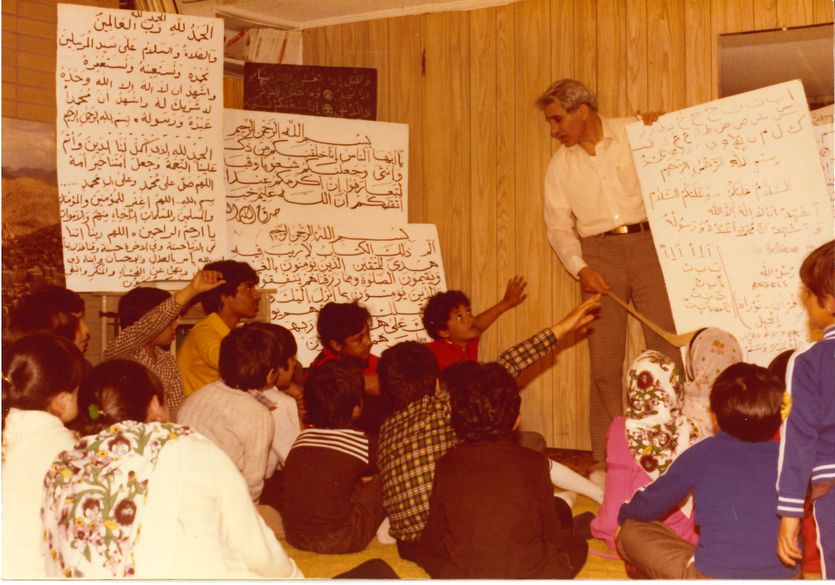Ahmet Fuad Sahin (Şahin), MD, CM, OOnt (born 6 September 1922 in Turkey; died 4 November 2019 in Niagara-on-the-Lake, ON). Fuad Sahin was an early Muslim immigrant to Canada. He was a urologist who served the Greater Niagara Region. Moreover, he functioned as a local imam, community leader and humanitarian. Notably, Sahin helped found several Muslim organizations, such as the Council of Muslim Communities of Canada.
Early Life
Born in Turkey, in 1922, Fuad Sahin graduated from Istanbul University’s medical school in 1950. He spent eight years in Syria, where he learned Arabic and studied the Quran and Islam. He initially practised medicine in Turkey, mainly attending to the impoverished Kurdish community.
Immigration to Canada
In 1958, Fuad Sahin immigrated to Canada and arrived in Kingston, Ontario. There, he became a medical intern specializing in urology at the Hotel Dieu Hospital. He chose to come to Canada because he was impressed by Prime Minister Lester B. Pearson. In a later interview, Sahin stated that Pearson was the “greatest man...a real democratic person” because of his role in helping end the Suez Crisis in 1956.
After practising medicine in Northern Ontario, Sahin and his family eventually moved, in 1966, to Niagara-on-the-Lake, ON. He became affiliated with the Greater Niagara General Hospital, where he continued to practise urology until his retirement.
He was one of the first Muslims in the Niagara region. With his connections to Toronto, he played an early community leadership role. He notably served as the president of the Islamic Foundation of Toronto. He subsequently became the imam of the Islamic Society of Niagara Peninsula mosque near his hometown of Niagara-on-the-Lake.
Community Leader
We can see Fuad Sahin’s community leadership as being split into four areas of focus. The first was to get Muslims in Canada to learn more about Canada and to become more Canadian. The second was to get Canadians to understand Islam. The third was to engage in interfaith dialogue between Muslims, Jews and Christians. And the fourth was his role as a founding figure in many important Canadian Muslim institutions, many of which still exist.
Sahin was a proud Canadian with a deep understanding of the country. He sought to instill this in other Muslims. In an undated speech to the mayor and other political leaders of St. Catharines, Ontario, he writes that “Canada is our country of choice. The native people came first followed by waves after waves of people of all races. There are old settlers and newcomers, but we are all the same.” He notably stressed the importance of Canadian multiculturalism and its focus on living alongside different people.
Aiming to get Canadians to understand Islam and promote interfaith dialogue, he helped found Islam-West Associates (Canada). This organization sought to address misunderstandings between Western and Islamic countries through exchanges and dialogue. In 1982, for example, the branch sponsored a conference on “Islam and the Western World” that was held at the University of Toronto.
Sahin, however, is perhaps best known for his role in founding several important Muslim organizations. He notably helped found the Council of Muslim Communities of Canada (CMCC) in 1972–73. Early on, he and other community figures like Muin and Talat Muinuddin, Ebrahim Sayed, Qasem Mahmud, and Murray and Alia Hogben helped shape the CMCC and its various projects. The CMCC, though now defunct, was the first national Muslim organization in Canada. Its mandate was to create a national voice for Muslims that transcended denominational lines. The organization had a presence in every major city in Canada.

Out of this organization sprang the Canadian Council of Muslim Women (CCMW) and a set of summer camps in Ontario for Muslim youth. In 1983–84, Sahin and the CMCC also founded the International Development and Relief Foundation (IDRF) NGO. The IDRF is committed to connecting Canadian and Muslim communities. It provides long-term development projects throughout the world based on the Islamic principles of human dignity, self-reliance and social justice. The organization also works on emergency humanitarian assistance (e.g., cyclone relief in Myanmar in 2008).
In 2017, for his efforts and contributions to Canada, he was appointed as a member of the Order of Canada. The recognition noted that:
“guided by the principles of openness and tolerance, he has supported the leadership of women within the faith, and nurtured mutual understanding between Muslim communities and with the broader Canadian population.”

 Share on Facebook
Share on Facebook Share on X
Share on X Share by Email
Share by Email Share on Google Classroom
Share on Google Classroom

